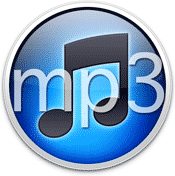You know how it is. You’ve picked up a new CD and you want to play it on your portable music player. But instead of an Apple music player, you own something else, like a Sony Digital Walkman, Zune, or Sansa Fuze. And doggone iTunes will only rip CD tracks into Apple’s proprietary “.AAC” file format — a format which is only playable on Apple’s music players (iPod, iPhone, iPad).
How do you get your music onto your device using only iTunes? It’s a lot easier than you think.
It turns out, iTunes is able to encode CD tracks into several other file formats. AAC is merely the default; Apple being Apple, they want to ensure that using their stuff instead of anybody else’s.
You can change this setting, and you don’t have to be a music engineer to do it.
1) Open iTunes.
2) Under the “iTunes” menu in the top left corner, click “Preferences.”

3) A new window will open up, where you can adjust your preferences for every aspect of iTunes. There on the first tab, marked “General,” click on the “Import Settings” button near the bottom.

4) The Import Settings menu opens. The first option at the top says “Import Using.” If you click on the drop-down menu beside it, you’ll see that there are five different formats that iTunes can import and encode your CD tracks as. “MP3 Encoder” will import all of your CD tracks as MP3s, and so forth.

MP3 is the most widely used format, though some audiophiles prefer the “WAV” format because it stores a great deal more information, and therefore is a more “pure” reproduction of your CD tracks. MP3s compress audio files, resulting in some minimal loss of sound quality. These losses are usually so insignificant that no one but the most trained ears will detect them. But it’s nice that iTunes gives you both options.
That’s it. Click “OK” twice to exit Preferences. From now on, every CD you import will be saved as a file with a “.mp3” extension. Unfortunately, this process does nothing to change over all of your existing music files saved to your iTunes library. For those, you may want to look into some file conversion software. Another option — although much more tedious — would be to delete all of your CD files from your iTunes library and then re-import them one at a time using these new settings.
Given the versatility of the MP3 format and all the places it’s recognized, using MP3 instead of AAC makes sense even if you’re a diehard Apple fanatic. I switched my iTunes file format ages ago, and always import every musical track as an MP3 file.
It just makes life simpler.





3 thoughts on “How To: Encode Real MP3s in iTunes”
“And doggone iTunes will only rip CD tracks into Apple’s proprietary “.AAC†file format — a format which is only playable on Apple’s music players (iPod, iPhone, iPad).”
This statement couldn’t be more wrong even if you had tried. First off, AAC is *not* a proprietary format. AAC stands for Advanced Audio Coding, which is a part of the MPEG-2 and MPEG-4 standards. Yep, AAC comes from the same group that brought you MP3. AAC was introduced in 1997, which was actually before the big MP3 wave started happening.
In addition, there are a number of devices that support AAC in addition to Apple — pretty much any device that supports Blu-Ray playback will. The Xbox 360 as well, along with the Nintendo DS (and presumably the 3DS as well).
For a given bitrate, AAC typically outperforms MP3. If given a choice, AAC is the superior format to choose and converting to MP3 for older devices can be done relatively easy from within iTunes or by using third party tools.
You might be making your life simpler in the short run, but eventually you won’t have any devices that you use for music playback that don’t support AAC — and then you’ll have to live with inferior MP3 files or you’ll have to re-rip all of your CDs again as AAC files.
Dennis is correct.
The article asserts that Apple’s default choice of AAC encoding is due to some ulterior motive to lock users in, when in fact it is simply to provide superior sounding more compact files.
See; https://en.wikipedia.org/wiki/Advanced_Audio_Coding#AAC.27s_improvements_over_MP3
The AAC codecs are available for any company to license. Heck, even the Microsoft Zune player will play these files.
I suspect that the reason some companies still don’t support AAC is probably because they are too cheap to pay a few extra pennies per unit in licensing fees. So everyone else gets stuck using the least common denominator (and inferior) MP3 files. How sad.
Yeah, I like how you’re also encoding those mp3s at 160! Jeez, at least go to 320 and give ’em a fighting chance to sound decent.